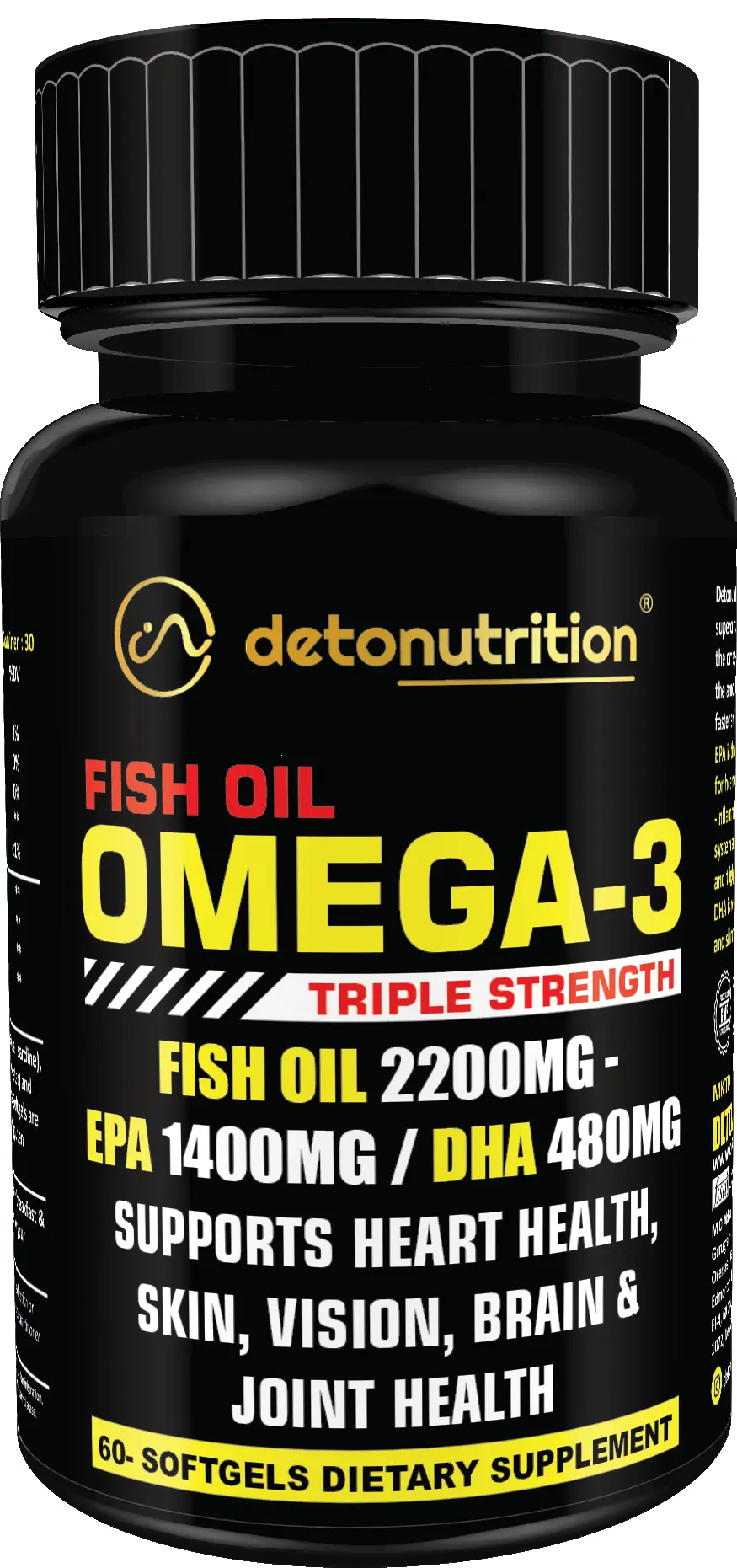Is Omega 3 Fish Oil Really Good For You?
Omega-3 fish oil is a dietary supplement and has gained significant attention in recent years for its potential health benefits, especially for heart health, brain function, and inflammation reduction. As more people seek ways to improve their overall well-being, the question arises: Is omega-3 fish oil really good for you? To know the answer of this question, check out this blog. In this blog, you’ll explore the science behind omega-3 fatty acids, their benefits, recommended dosages, and any potential side effects.
Understanding Omega-3 Fatty Acids
Omega-3 fatty acids are essential fats that the body cannot produce on its own. Therefore, it is crucial to consume them in the form of supplements or through diet. There are two types of omega 3 fatty acids i.e. marine-based (fish oil) and plant-based. The fish oil is basically extracted from the tissues of different types of fatty fish whereas plant-based omega 3 comes from walnuts, chia seeds and flaxseeds, seaweed and other plant-based sources. Fish oil mainly contains two components i.e. EPA and DHA. The three main types of omega-3 fatty acids include:
Eicosapentaenoic Acid (EPA)
As we already mentioned above, EPA is primarily found in fish and fish oil. It is known for its anti-inflammatory properties.
Docosahexaenoic Acid (DHA)
DHA is also found in fish and is vital for brain health and development.
Alpha-Linolenic Acid (ALA)
Alpha-Linolenic Acid is found in plant-based omega-3 such as flaxseeds, chia seeds, and walnuts etc.
Sources of Omega-3 Fatty Acids
The best sources of EPA and DHA are fatty fish such as:
- Salmon
- Mackerel
- Sardines
- Tuna
- Herring
- Anchovies
For those who do not consume fish, omega-3 supplements derived from fish oil or algae can be an effective alternative. While plant sources like flaxseeds and walnuts provide ALA, they do not offer the same levels of EPA and DHA found in fish.
Health Benefits of Omega-3 Fish Oil
1. Heart Health
Omega-3 fatty acids have a positive impact on heart health. The regular consumption of omega-3s may lead to modest reductions in blood pressure levels and can significantly lower triglyceride levels in the blood, which is crucial for reducing the risk of heart disease. It also slow-down the development of arterial plaque, reducing the risk of atherosclerosis.
2. Brain Health
Omega-3 fatty acids play a vital role in brain function and development. DHA is particularly important for maintaining cognitive function throughout life. Omega-3 supplementation has been linked to improvements in memory among individuals with cognitive impairments and may help alleviate symptoms of depression and anxiety by influencing neurotransmitter function.
3. Inflammation Reduction
Chronic inflammation is associated with various health issues, including heart disease, arthritis, and certain cancers. Omega-3 supplementation possesses anti-inflammatory properties that may help in reducing symptoms of inflammatory diseases like rheumatoid arthritis due to its ability to decrease inflammation.
4. Eye Health
Omega-3 fatty acids are essential for maintaining eye health. DHA is a major structural component of the retina. Adequate intake of Omega-3 supplement may lower the risk of age-related macular degeneration (AMD), a leading cause of vision loss.
5. Skin Health
Omega-3s contribute to skin health by maintaining hydration and reducing inflammation associated with conditions like eczema and psoriasis. They may also help protect against sun damage.
Potential Side Effects of Taking Omega-3 Fish Oil
While omega-3 fish oil is generally considered safe for most people when taken within recommended dosages, some individuals may experience side effects such as:
Gastrointestinal Issues
Nausea, diarrhea, or bloating can occur in some individuals.
Increased Bleeding Risk
High doses may increase bleeding risk, particularly in those taking blood-thinning medications.
Before starting any new supplement regimen, especially at higher doses, consulting with a healthcare provider is advisable.
Conclusion
In conclusion, omega-3 fish oil offers numerous health benefits supported by scientific research. From promoting heart health to enhancing brain function and reducing inflammation, these essential fatty acids play a critical role in overall well-being. While supplements can provide a convenient source of omega-3s for those who do not consume enough fish, incorporating fatty fish into your diet remains the best approach for maximizing health benefits. As always, it’s essential to consult with healthcare professionals before making significant changes to your diet or supplement routine. With proper guidance and informed choices, you can harness the power of omega-3 fatty acids for better health. By understanding the benefits and potential risks associated with omega-3 fish oil supplementation, you can make educated decisions about your dietary choices and overall wellness strategy.

We have a vision to take good care of your health and nutrition with products which are made from research and experience. Our team is technical as well as experienced so that we can deliver you the best products for your health and wellness.
Stay Fit, Stay Healthy And Stay Happy Always!
QUICK LINKS
CATEGORIES
Subscribe Us
Subscribe to Dr. Aaditya's Health Blog Email Newsletter
© Copyright - Detonutrition. All Right Reserved 2026.




